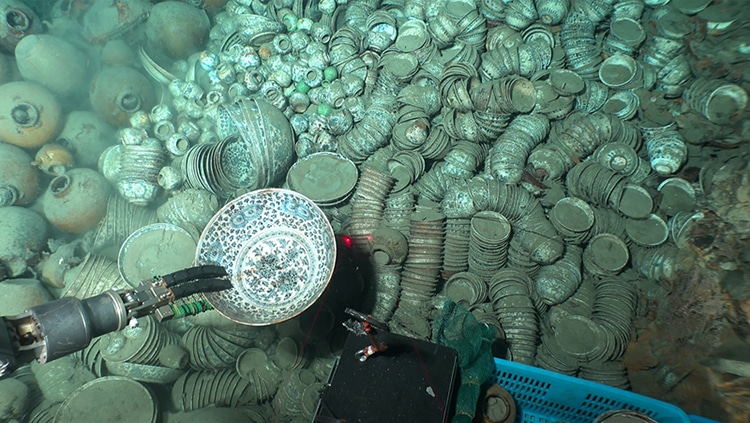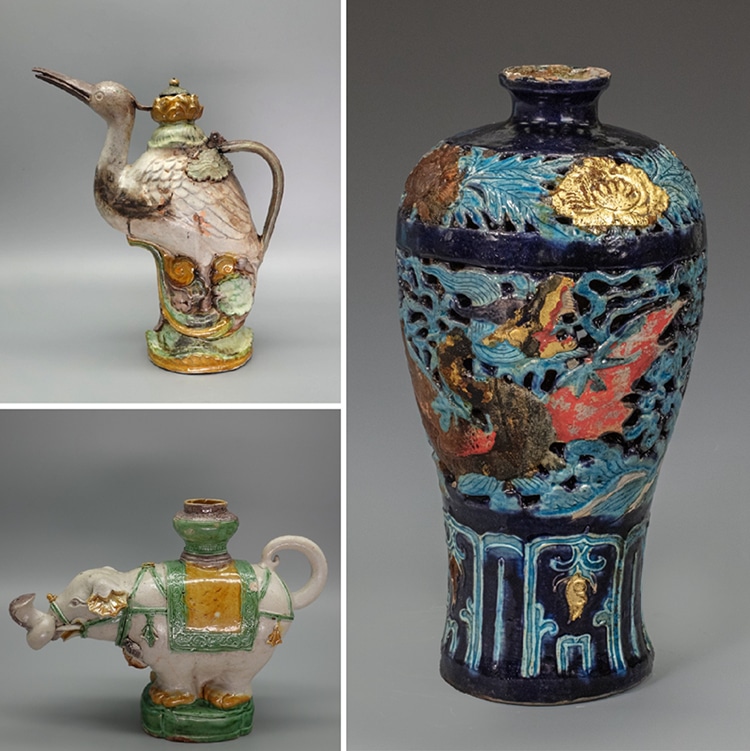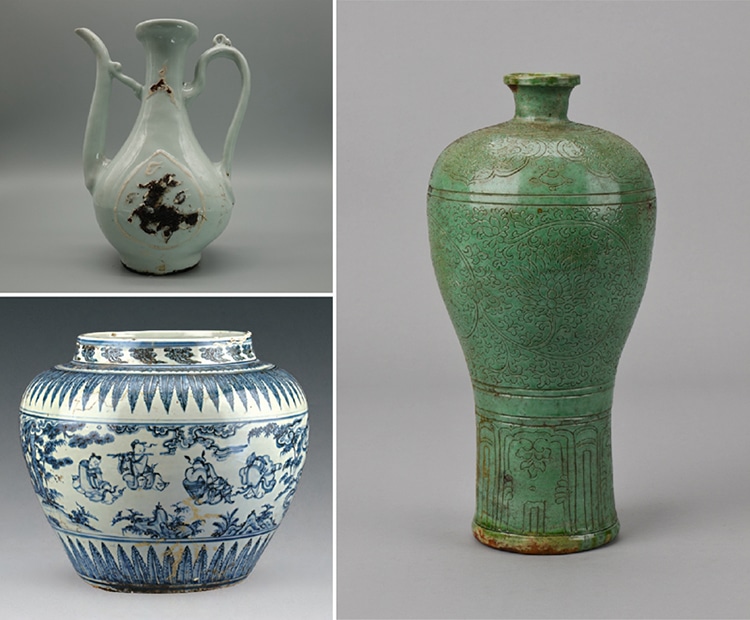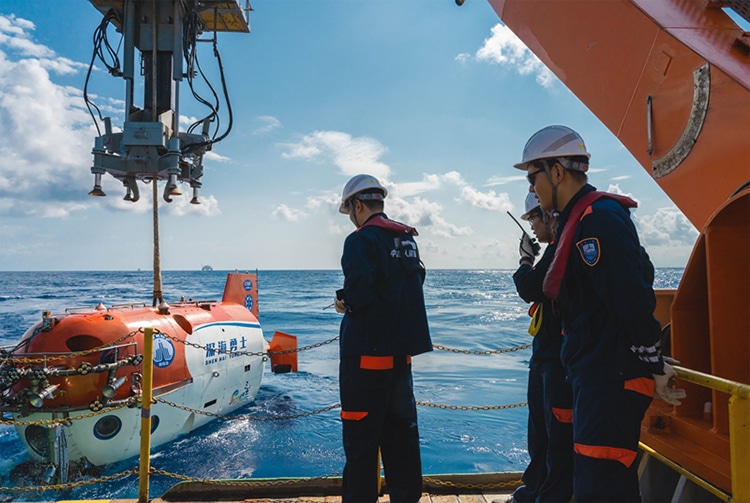
Relics being manually retrieved. (Photo: National Cultural Heritage Administration)
China’s history is long and varied, encapsulating an evolving artistic, political, and territorial landscape. One period of famous artistic significance is the Ming Dynasty, which was named after the house of rulers who spanned the period from 1368 to 1644. During this period, China expanded its trade with other nations, sending many ships to India and beyond, especially as its classic blue and white porcelain became incredibly popular in Europe. Some of these ships inevitably met watery ends, leaving behind shipwrecks that act as time capsules from centuries ago. Since 2023, archeologists have raised over 900 exceptional artifacts from two Ming Dynasty shipwrecks in the South China Sea, as announced by China’s National Cultural Heritage Administration (NCHA).
The South China Sea lies in the Pacific Ocean beneath China and between Vietnam and the Phillippines. It was a frequent route for trade ships during the Ming Dynasty. The two wrecks were found in 2022, about 14 miles apart on the seafloor. They lie under nearly 5,000 feet of water. In 2023, a group of researchers from different institutions set about surveying and collecting artifacts from the wrecks, work which has been ongoing over the months. Submersibles were lowered to explore the wrecks and retrieve items, while cameras and laser technology were used to photograph and 3D-map the wrecks.
Thousands of artifacts lie within the wreckage. So far, 890 pieces from the first ship, including copper coins, porcelain, and other parties, have been retrieved. The second ship has produced 38 artifacts, including deer antlers, lumber, shells, and more pottery. Thousands of further discoveries lie in wait.
It’s believed that the ships may have sailed from Jingdezhen, a center of porcelain exportation. The beautiful, colorful pottery and intricate vessels in the shape of animals are beautiful examples of Ming Dynasty art styles, mostly seeming to date to the late 15th and early 16th centuries.
“The discovery provides evidence that Chinese ancestors developed, utilized and traveled to and from the South China Sea, with the two shipwrecks serving as important witnesses to trade and cultural exchanges along the ancient Maritime Silk Road,” Guan Qiang, deputy head of the NCHA, noted in a statement. Archeologists can excitedly look forward to further announcements about these remarkable finds.
Two ships sank in the South China Sea during the Ming Dynasty, leaving behind two recently discovered wrecks full of beautiful vases and other treasures.

Discoveries from the two South China Sea shipwrecks. (Photo: National Cultural Heritage Administration)

Discoveries from the two South China Sea shipwrecks. (Photo: National Cultural Heritage Administration)

The retrievals were conducted with a manned submersible named Shenhai Yongshi (Deep Sea Warrior). (Photo: National Cultural Heritage Administration)
h/t: [Smithsonian Magazine]
Related Articles:
Researchers Discover 7,000-Year-Old Underwater Road
130-Foot-Long Snake Carvings From 2,000 Years Ago Found in South America
Discover the Hallaton Helmet, a Newly Restored Piece of Ancient Roman Armor
7,000-Year-Old Canoes Discovered Near Rome Are Oldest Ever Found in Mediterranean
